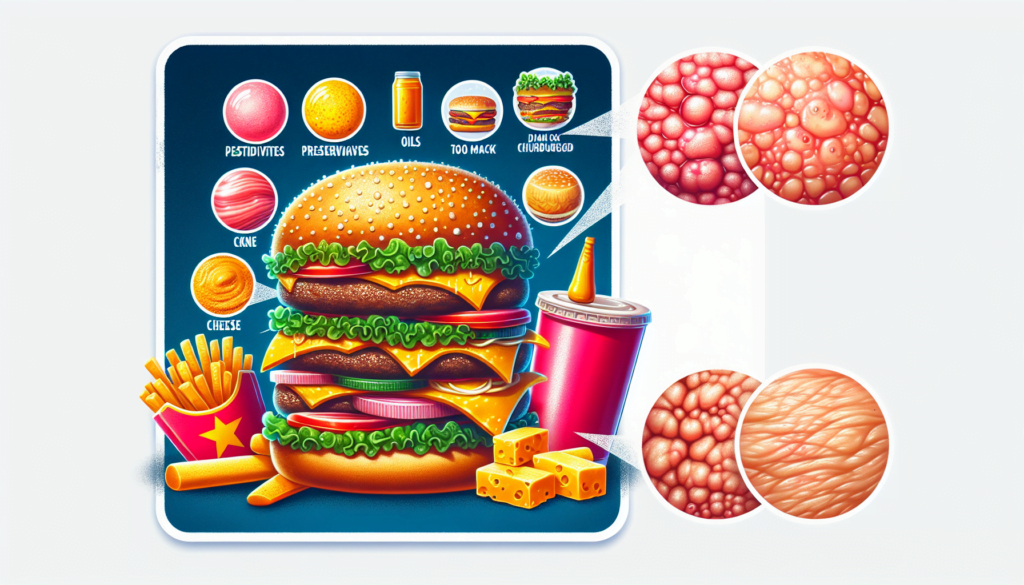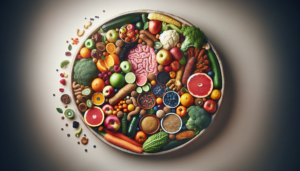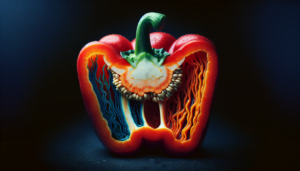So, what 7 foods are bad for your skin? Did you know that what you eat can have a direct impact on the health of your skin? It’s true! This article will explore seven common foods that are bad for your skin. From sugary treats to greasy fast food, these culprits can wreak havoc on your complexion and contribute to issues like acne and premature aging. So, if you want to achieve a healthy and glowing complexion, it’s time to pay attention to your diet. Let’s dive into the world of skin-sabotaging foods and discover what you should avoid for a more transparent, brighter, and radiant complexion.
Dairy Products


Milk
While milk is considered a staple in many households and a good source of calcium and protein, it may not be the best choice for your skin. Research suggests that milk contains hormones, such as estrogen and progesterone, that can disrupt the balance of hormones in your body. This hormonal imbalance can lead to increased oil production, clogged pores, and acne breakouts. Consider alternatives such as almond or oat milk if your skin reacts negatively to milk.
Cheese
Cheese lovers, I have some news for you. Unfortunately, cheese is not particularly skin-friendly. Like milk, cheese contains hormones that can wreak havoc on your skin, causing inflammation and acne. Additionally, cheese is often high in saturated fat, contributing to skin inflammation and even making your complexion appear dull and tired. If you can’t bear giving up cheese completely, consider reducing your intake or opting for lower-fat options.
Ice Cream
Ice cream is undeniably delicious, but it may not be suitable for your skin. The high sugar content in ice cream can lead to inflammation and break down collagen in your skin, resulting in premature aging. Moreover, dairy-based ice creams can exacerbate acne-related issues. Consider healthier alternatives like frozen yogurt or fruit-based sorbets if you’re craving something cold and sweet.
Processed Foods
Fast Food
Fast food is convenient and often tempting, but it’s essential to be mindful of its impact on your skin. Fast food is typically high in unhealthy fats, such as trans and saturated fats, which can contribute to inflammation and skin problems. Additionally, fast food often lacks essential nutrients and antioxidants that promote healthy skin. Reducing your fast food consumption and opting for healthier alternatives can support your skin’s health and overall well-being.
Chips and Snacks
Those crispy and salty snacks may satisfy your cravings but can harm your skin in the long run. Most chips and snacks are highly processed and contain unhealthy fats, artificial flavors, and preservatives. These ingredients can lead to inflammation and breakouts, making your skin look dull and unhealthy. When you need a snack, try reaching for healthier options like air-popped popcorn, veggie sticks with hummus, or roasted nuts.
Instant Noodles
Instant noodles may be quick and easy, but they are often packed with sodium, unhealthy fats, and preservatives. Excessive consumption of instant noodles can cause water retention and puffiness in your face. Additionally, the high glycemic index of instant noodles can cause spikes in your blood sugar levels, which may contribute to increased oil production and breakouts. If you want a more skin-friendly alternative, consider preparing home-cooked meals with nutritious ingredients.
Sugary Drinks
Soda
We all know soda is not the healthiest choice, but did you know it can also negatively affect your skin? Soda is loaded with sugar, which can cause inflammation and break down collagen, leading to premature aging. Furthermore, the high sugar content can contribute to insulin resistance, associated with various skin issues, including acne. Reducing soda and replacing it with water or healthier alternatives like herbal tea or infused water can make a noticeable difference for your skin.
Fruit Juices with Added Sugar
While fruit juice may seem healthy, it’s essential to be cautious of those with added sugars. Fruit juices with added sugar can be as harmful to your skin as soda. The excess sugar can again lead to inflammation and collagen breakdown. Additionally, fruit juices often lack the fiber that comes with whole fruits, resulting in a higher glycemic index, which can cause potential skin issues. Instead of sugary fruit juices, opt for freshly squeezed juices or enjoy whole fruits.
Energy Drinks
Although energy drinks may give you a temporary boost of energy, they are not doing any favors for your skin. These drinks typically contain high caffeine, sugar, and artificial additives. Combining these ingredients can lead to dehydration, making your skin look dull and tired. Moreover, excessive caffeine intake can disrupt sleep patterns, negatively impacting skin health. Stick to natural energy sources, such as balanced meals and regular exercise, for healthier-looking skin.
High-Glycemic Index Foods
White Bread
White bread is made from refined flour, meaning it has been stripped of fiber and nutrients. The high glycemic index of white bread causes a rapid spike in blood sugar levels, which can lead to increased oil production and inflammation in the skin. Instead of white bread, opt for whole grain alternatives like whole wheat or multigrain bread, which have a lower glycemic index and are rich in fiber and nutrients that are beneficial for your skin.
White Rice
Like white bread, white rice is highly refined and has a high glycemic index. This means it can cause a similar spike in your blood sugar levels, leading to potential skin issues. Replacing white rice with healthier alternatives like brown rice, quinoa, or cauliflower rice can provide your body with essential nutrients and help maintain stable blood sugar levels, contributing to healthier skin.
Sugary Cereals
Starting your day with a bowl of sugary cereal may be convenient, but better skin choices exist. Most sugary cereals are highly processed and packed with refined grains, artificial additives, and added sugars. These ingredients can cause a rapid spike in blood sugar levels, leading to increased oil production and inflammation in the skin. Opt for whole grain cereals with no added sugars or healthier breakfast alternatives like oatmeal or chia seed pudding.
Fried Foods
French Fries
While they may be tempting, those golden and crispy french fries are not doing your skin any favors. Fried foods, including french fries, are typically cooked in unhealthy oils that can contribute to inflammation and clogged pores. Additionally, the high-fat content in fried foods can lead to increased sebum production, potentially causing breakouts. If you’re craving a savory snack, consider baking or air-frying alternatives, such as sweet potato or zucchini fries, for a healthier, skin-friendly option.
Fried Chicken
Fried chicken may be tasty, but the deep-frying process can take a toll on your skin. The excessive oil and unhealthy fats in fried chicken can trigger inflammation and breakouts. Moreover, consuming fried foods regularly can contribute to oxidative stress in the body, which can accelerate aging and impact the health of your skin. If you enjoy the flavors of fried chicken, try baking or grilling chicken with various herbs and spices for a healthier alternative.
Onion Rings
Onion rings may add a crunchy and flavorful element to your meals but are typically heavy in unhealthy fats and calories. The deep-frying process used to make onion rings can increase oil absorption, making them an unhealthy choice for your skin. The excessive consumption of fried foods can contribute to skin inflammation and breakouts. Make your own baked or air-fried onion rings with a healthier batter to satisfy your craving for crispy onions.
Alcohol
Beer
While enjoying a cold beer with friends can be a relaxing experience, excessive alcohol consumption can negatively impact your skin. Alcohol is a diuretic, meaning it can dehydrate your body, leading to dry and dull skin. Furthermore, alcohol can dilate blood vessels, causing flushed and inflamed skin. Regular and heavy drinking can also lead to nutrient deficiencies, as alcohol can inhibit the absorption and utilization of essential vitamins and minerals that are crucial for healthy skin. Moderation is vital for your skin’s health when consuming alcohol.
Wine
Moderate wine consumption may have some health benefits, mainly due to the presence of antioxidants like resveratrol. However, excessive wine intake can contribute to dehydration, resulting in dry and lackluster skin. Red wine, in particular, contains tannins that can trigger skin sensitivities, leading to redness or inflammation. If you enjoy a glass of wine, remember to hydrate adequately and be mindful of your overall consumption for your skin’s health.
Spirits and Cocktails
Cocktails and spirits can be enjoyed on special occasions, but it’s essential to be aware of their impact on your skin. Alcoholic beverages such as cocktails often contain sugary mixers, which can lead to inflammation and break down collagen fibers in your skin, making it appear less vibrant and more prone to premature aging. Additionally, excessive alcohol consumption can impair liver function, hindering your body’s ability to detoxify and contribute to skin issues. It’s essential to moderate your consumption and opt for healthier choices, such as lower-sugar mixers or spirits mixed with sparkling water or natural fruit juice.
High Sodium Foods
Processed Meats
Processed meats, such as sausages, bacon, and deli meats, are high in sodium. Excessive sodium intake can lead to water retention in your body, causing your skin to appear puffy. Moreover, the high sodium content can contribute to inflammation, potentially exacerbating skin conditions like acne. It’s advisable to limit your consumption of processed meats and opt for leaner protein sources like grilled chicken or fish to support healthier skin.
Canned Soups
Canned soups may provide convenience, but they are often loaded with sodium. Excessive sodium intake can lead to dehydration and water retention, resulting in puffy skin. Additionally, canned soups may contain additives and preservatives that can potentially irritate your skin. Preparing homemade soups with fresh ingredients or opting for low-sodium varieties can help reduce your sodium intake and improve the health of your skin.
Pickles
Pickles are popular condiments known for their tangy flavor but can be high in sodium. Consuming large quantities of pickles can contribute to water retention and bloating, affecting the appearance of your skin. Pickles also often contain artificial additives and preservatives that can irritate your skin and trigger inflammation. Be mindful of your pickle consumption and consider enjoying them in moderation or opting for low-sodium alternatives.
Spicy Foods
Hot Peppers
If you enjoy adding a kick to your meals with hot peppers, you must be aware of their potential impact on your skin. Spicy foods can dilate blood vessels, leading to redness and potential skin sensitivities. Additionally, spicy foods can trigger excessive sweating, potentially leading to clogged pores and breakouts. While occasional consumption of hot peppers can provide health benefits, it’s essential to listen to your skin and adjust your intake accordingly to maintain a healthy complexion.
Spicy Sauces
Whether it’s hot sauce, sriracha, or other spicy condiments, some people can experience skin reactions to these fiery flavors. Spicy sauces often contain ingredients such as chili peppers or capsaicin, which can cause skin redness, irritation, or even hives in some individuals. If you notice any adverse skin reactions after consuming spicy sauces, it may be best to limit or avoid them to maintain the health of your skin.
Curry Dishes
Curry dishes are favorites in many cuisines, but the spices used in these flavorful creations can have varying effects on different individuals’ skin. Certain spices commonly found in curry dishes, such as turmeric, cumin, or coriander, have anti-inflammatory properties and can benefit the skin. However, some individuals may experience skin reactions or sensitivities to these spices, manifesting as redness or irritation. If you notice any adverse skin effects after consuming curry dishes, it may be worth reducing your intake or exploring milder alternatives to maintain healthier skin.
Gluten
Wheat-Based Products
Gluten is a protein found in wheat, and some people may experience gluten sensitivities or have celiac disease, which is an autoimmune disorder triggered by gluten consumption. For individuals with these conditions, consuming wheat-based products can cause various skin issues, including rashes, itching, or dermatitis herpetiformis. If you suspect gluten may be affecting your skin, it’s essential to consult with a healthcare professional and consider eliminating gluten from your diet to improve your skin’s health.
Barley
Like wheat, barley contains gluten and can cause skin issues in individuals with gluten sensitivities or celiac disease. Some people may experience skin reactions, such as rashes or eczema, after consuming barley-based products. If you suspect gluten sensitivity or observe adverse skin effects after consuming barley, it’s recommended to seek medical advice and consider eliminating gluten-containing grains from your diet.
Rye
Rye is another grain that contains gluten and can cause skin problems for individuals with gluten sensitivities or celiac disease. Skin issues related to rye consumption can range from itching and redness to more severe conditions, like dermatitis herpetiformis. If you suspect rye or gluten may be affecting your skin, consulting with a healthcare professional and adhering to a gluten-free diet may be necessary to support healthier skin.
High Mercury Fish
Shark
Sharks are a type of fish that tend to have higher levels of mercury due to their position in the ocean food chain. High mercury levels can harm your health, including your skin. Exposure to excessive amounts of mercury from consuming sharks can lead to skin-related symptoms such as rashes, itching, and even discoloration. It’s essential to be cautious when consuming shark and opt for lower-mercury fish options to protect your overall well-being, including your skin.

Swordfish
Like sharks, swordfish are also known to have higher levels of mercury. Excessive mercury consumption from swordfish can lead to mercury poisoning, manifesting through various symptoms, including skin-related issues. To prioritize your skin’s health, it’s advisable to limit your consumption of swordfish and choose alternative fish options that are lower in mercury.
King Mackerel
King mackerel is another fish that tends to have higher levels of mercury, making it a food to be mindful of when it comes to your skin’s health. The accumulation of mercury in your body can have an impact on various organs, including your skin. To minimize your exposure to mercury and support healthier skin, opting for lower-mercury fish options like salmon, trout, or sardines is best.
Remember, maintaining healthy skin goes beyond skincare routines and products; it also involves making conscious choices about what we put into our bodies. By being mindful of our food choices and opting for healthier alternatives, we can support our skin’s health and overall well-being. Listen to your skin and observe how it reacts to different foods, allowing you to make informed decisions that will help you achieve the radiant and healthy skin you desire.



